Iran blasts West's instrumental use of human rights to advance political goals
Iran’s permanent representative to the United Nations Office and other international organizations in Geneva has censured Western governments for using human rights as a political tool against the Islamic Republic following the UN Human Rights Council’s approval of an anti-Tehran draft resolution.
Ali Bahraini made the remarks in a Tuesday speech ahead of voting on a draft resolution, titled "Situation of human rights in the Islamic Republic of Iran," proposed by the United Kingdom, Iceland, North Macedonia, the Republic of Moldova and Northern Ireland at the 52nd regular session of the Human Rights Council.
The anti-Iran draft resolution was approved after 23 member states voted in favor, eight countries were against and 16 others abstained.
“The draft of the resolution that the Council is about to put to vote, submitted by Iceland and Britain as its main sponsors, is completely unjustifiable and rejected by Iran,” Bahraini said.
Stressing that the supporters of the resolution hide themselves behind the title of human rights, the Iranian diplomat said certain states exploit the organization to advance their own political objectives.
“From Iran's point of view, this resolution is considered a malicious attempt to target and deliberately tarnish Iran's human rights image through fabricating distorted narratives, negative stereotypes and false accusations,” Bahraini underlined.
The Iranian diplomat said the Islamic Republic’s achievements in observing human rights over the past four decades demonstrate the country’s determination to respect, protect, and realize human rights.
“The instrumental use of human rights is unacceptable and endangers human rights cause,” Bahraini said, adding, “This approach neither helps preserve and promote human rights, nor is compatible with facts on the ground as well as the history and background of the Iranian culture and civilization.”
At the 52nd regular session of the Human Rights Council on Tuesday, Cuba, China, and South Africa delivered speeches in favor of Iran and warned of the instrumental and political use of human rights.
The resolution, which extended the mandate of the UN special rapporteur on the rights situation in Iran for another year, accused the Islamic Republic of “crackdown” on violent riots that erupted across the country last September.
Riots broke out in Iran in mid-September after the death of Mahsa Amini. The 22-year-old woman fainted at a police station in Tehran and was pronounced dead three days later in hospital. An official report by Iran’s Legal Medicine Organization concluded that Amini’s death was caused by illness rather than alleged blows to the head or other vital body organs.
Rioters went on a rampage, brutally attacking security officers and causing massive damage to public property. Dozens of people and security personnel were killed in the unrest.
Iran’s intelligence community said several countries, including the United States and Britain, used their spy and propaganda apparatuses to provoke violent riots in the country.
On February 5, Leader of the Islamic Revolution Ayatollah Seyyed Ali Khamenei pardoned or commuted the sentences of a large number of Iranian prisoners who had been arrested during the riots.
The Leader’s amnesty, issued on the occasion of the 44th anniversary of the glorious victory of the Islamic Revolution, covered all but murderers and terrorists.
Foreign Ministry: Anti-Iran resolution ‘biased’
Meanwhile, Iranian Foreign Ministry spokesman Nasser Kan'ani rejected the anti-Iran resolution on Tuesday and said the measure was based on a “selective, biased and confrontational” attitude with “politically-motivated” objectives.
Highlighting the prejudices and hasty judgments in the resolution aimed at undermining the human rights achievements in Iran, Kan'ani described as “regrettable” the exploitation of UN mechanisms by some member states to achieve their political goals and the manipulation of human rights for political purposes.
“The countries that violate the rights of other nations cannot claim to be advocates of human rights or make judgments about it, and they must rather be accountable for their own crimes with regards to the gross and systematic violations of human rights in their countries and other countries of the world,” he noted.
Ball in Israel's court over Gaza ceasefire, Hamas chief tells Iran FM
Grossi says proposed ‘concrete practical measures’ to boost Iran-IAEA cooperation
UNICEF warns Rafah invasion to put 600,000 children at risk of catastrophe
Israel signals rejection of ceasefire proposal accepted by Hamas
US-Israeli espionage cell dismantled in Yemen
VIDEO | Drone shows scale of flood devastation in southern Brazil
UN experts ‘appalled’ by Israeli military’s sexual violence against Palestinian women
VIDEO | Thousands attend pro-Palestinian protest in Bangladesh


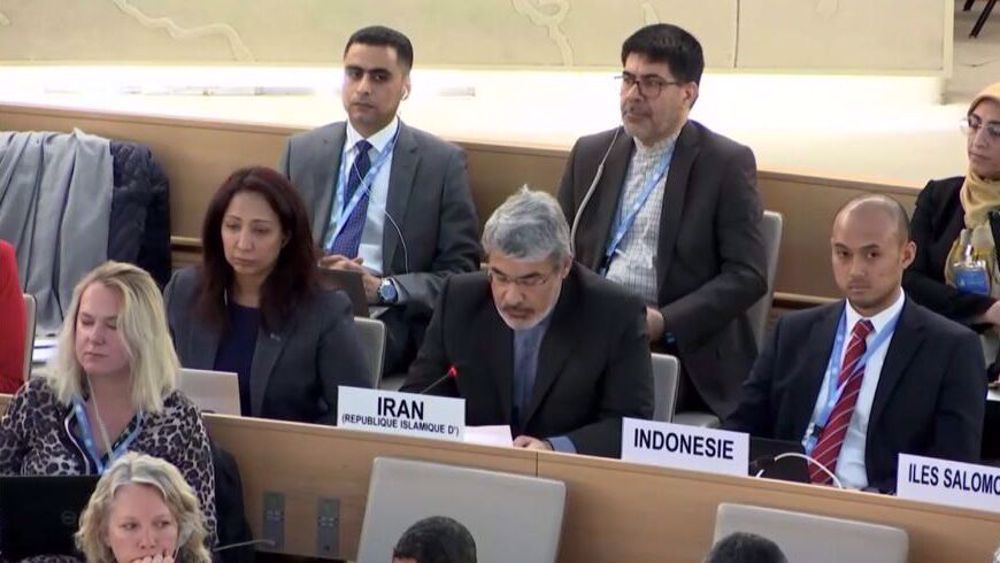
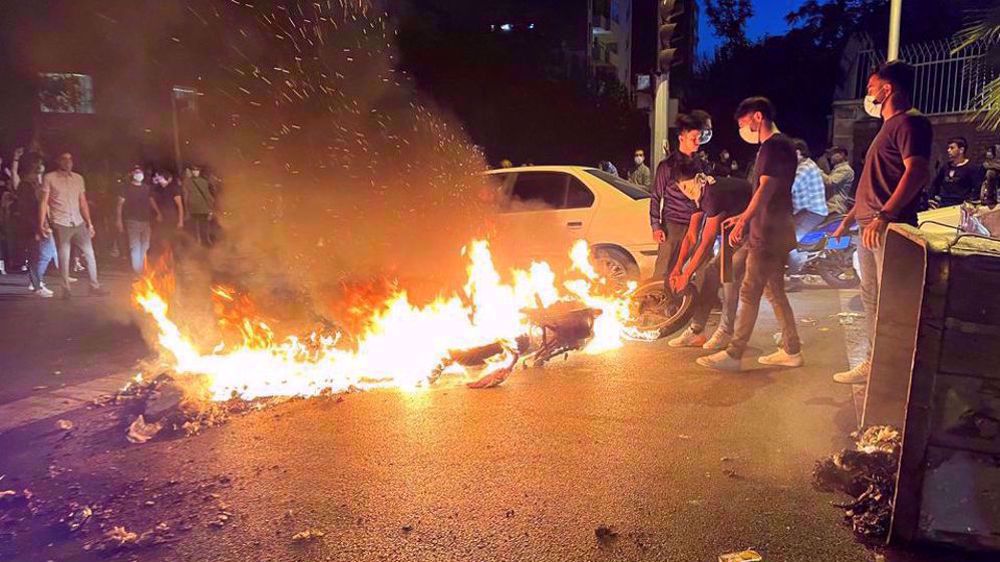
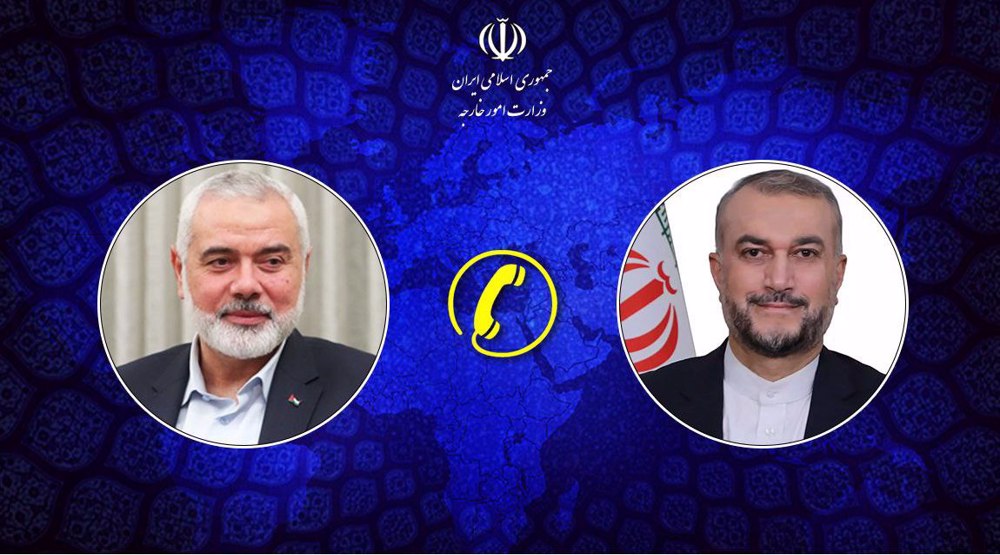
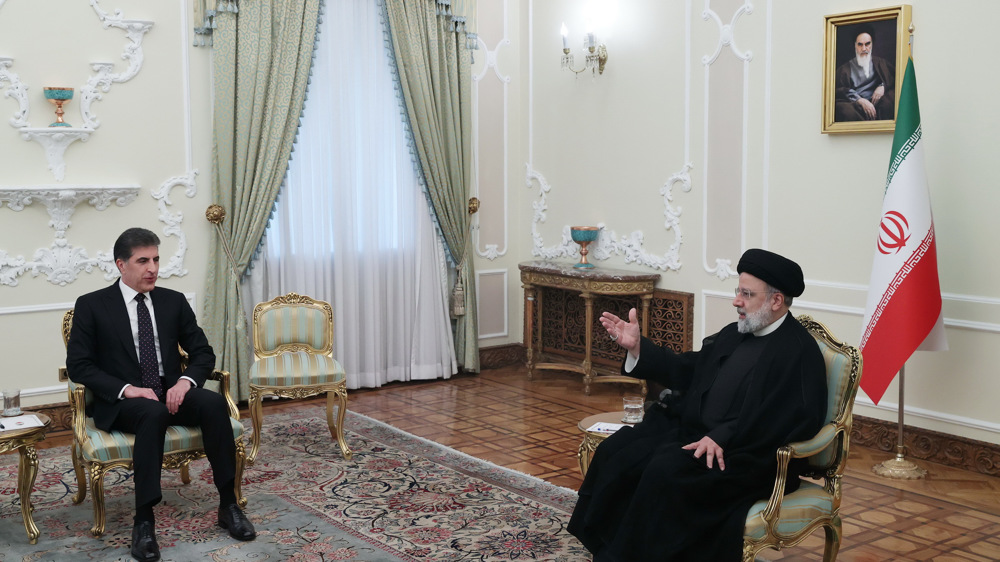
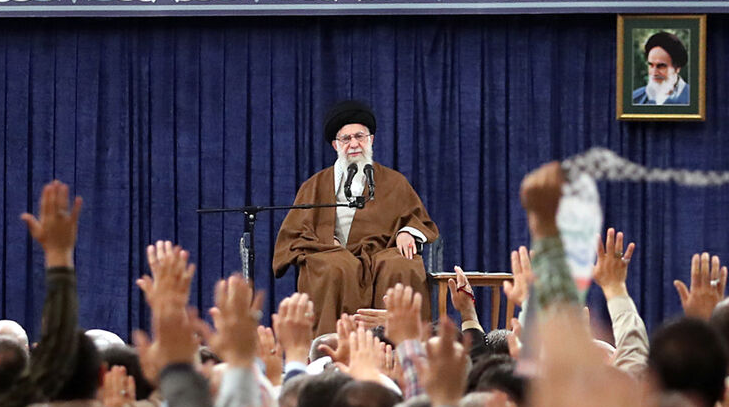




 This makes it easy to access the Press TV website
This makes it easy to access the Press TV website